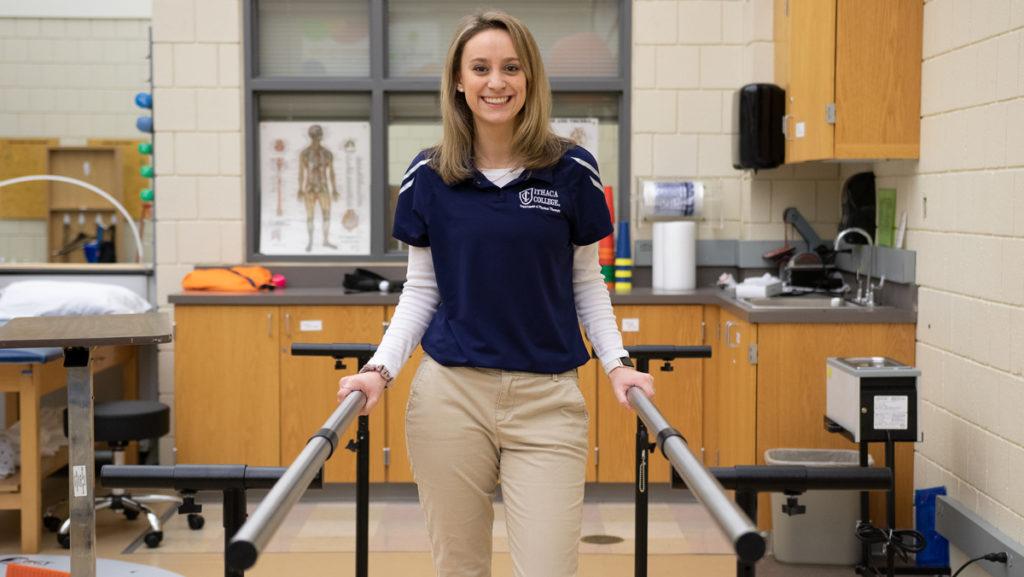For many students in the Ithaca College School of Health Sciences and Human Performance, conducting their own research is the ultimate goal. Senior Justina Snyder is already well on her way to achieving it.
Snyder is a clinical health studies major, which is part of the six–year physical therapy program, and she has minors in neuroscience, psychology and honors. Snyder was inspired to start her own research project in the fall of her sophomore year after taking a behavioral neuroscience course taught by Tamara Fitzwater, assistant professor in the Department of Psychology.
With Fitzwater’s guidance, the two worked together to study how physical stress impacts the brains and behaviors of adolescents. Last spring, Snyder and Fitzwater applied for the Academic Challenge Grant from the Office of the Provost, which provides funding to student-faculty teams involved in collaborative research projects. Synder said she plans to use her findings in her honors thesis, a final project that is required for seniors completing the honors minor in interdisciplinary studies.
Staff writer Ryan Bieber sat down with Snyder to discuss the inspiration for her research and the process of writing her thesis.
This interview has been edited for length and clarity.
Ryan Bieber: What made you want to major in physical therapy?
Justina Snyder: I always kind of knew I wanted to be in the medical or health care field, and, when I was looking at different options, I realized PTs actually get to sit down with their patients and develop a rapport. I really like building connections with people, and I thought that was a better way for me to be able to help people meet their goals and get better.
RB: How did you come up with the idea for your honors thesis?
JS: I knew stress was always a really big topic of discussion, and I kind of wanted to tie it into PT. I was kind of thinking about how stress impacts people’s ability to perform tasks and tying that into PT and neuroscience in general to see how stress affects the brain.
RB: How has the honors program played a role in your research?
JS: The whole purpose of the Honors Program is interdisciplinary, so they want you to take classes outside of your given major and explore different themes and topics. I really like this project because it’s taking my psych and neuroscience background and pairing it with PT and the classes I’ve taken within the Honors Program and kind of putting it all together. It’s cool to see things from different perspectives both in the neuroscience and psychology realms.
RB: What was your reaction when you found out you received the grant?
JS: We were really happy that we were able to secure the money to do the project. It was kind of nerve-racking because if we didn’t get this money, I don’t know that our project would have been able to happen. Science research in general is just really expensive, so we knew this was a great way we could get funding for the project.
RB: What phase are you at in your research?
JS: We did all the hands-on work last semester. This semester is really geared toward me writing my thesis. We’re exploring the opportunity to present at the Whalen Symposium here on campus, which is kind of a bucket list thing for me.
RB: What’s the most important takeaway from your research?
JS: Research projects are a fluid process, so you have to adjust. There’s going to be challenges and deadlines or something might not go as planned, and you just have to make adjustments to it. It’s been a great learning process.
RB: How do you balance all the classes in your major and minors with your research?
JS: It just comes down to organization and having a passion for things. It’s about all of the knowledge I’ve gained, the experiences I’ve had and the people I’ve met. It’s about having the drive and the passion to do it.









